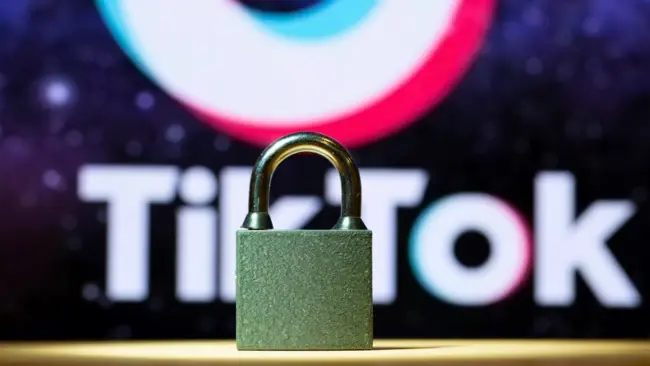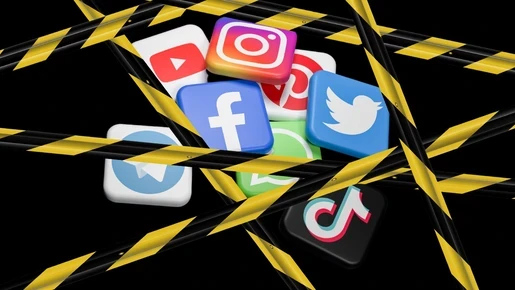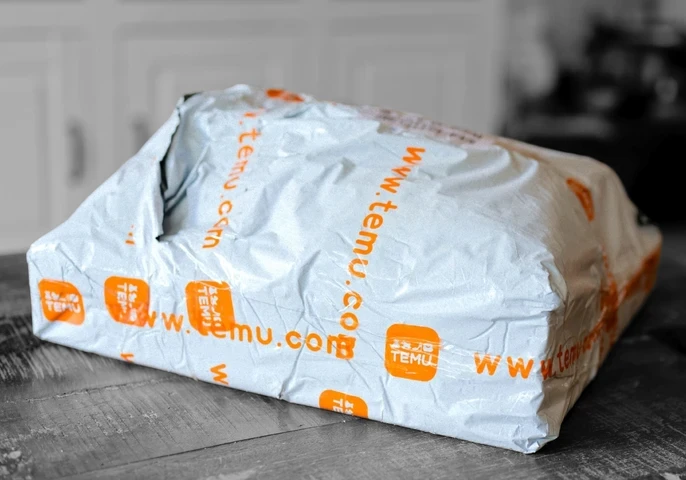In the wake of CEO Shou Zi Chew’s appearance before congress, the future of TikTok remains uncertain as government threats escalate.
TikTok boasts over 150 million users in the US, but the Chinese-owned social media app has come under increasing scrutiny from lawmakers, who question the app’s handling of user data, privacy and security practices, and measures to safeguard the safety of its users.
Others are concerned that the video-sharing app, which is owned by Chinese firm ByteDance, may share US data with Beijing as per Chinese legislation that requires all firms to help the communist party upon request.

In his opening statements at Thursday's hearing, Mr Chew attempted to assure congress members that TikTok would safeguard US data and its users.
“I understand that there are concerns stemming from the inaccurate belief that TikTok’s corporate structure makes it beholden to the Chinese government or that it shares information about U.S. users with the Chinese government,” Chew said. “This is emphatically untrue.”
Mr Chew assured that TikTok has never shared data on US users with the Chinese government nor has it ever received a request to do so. If China did request access to data on Americans, Chew argued that the company would not comply.
“Let me state this unequivocally: ByteDance is not an agent of China or any other country,” he said.
Few members of Congress seemed sympathetic to that argument, however. As the hearing unfolded, lawmakers pressed Chew for answers about the company’s relationship with China and its failure to moderate disturbing content.
“Your platform should be banned,” Chair Cathy McMorris-Rodgers (R-WA) said in her opening statement Thursday. “I expect today you’ll say anything to avoid this outcome.”
“TikTok is a weapon by the Chinese Communist Party to spy on you, manipulate what you see and exploit for future generations,” Committee Chair Cathy McMorris Rodgers said.
“What’s worse, we know Big Tech companies, like TikTok, use harmful algorithms to exploit children for profit and expose them to dangerous content online.
In response, Mr Chew trumpeted Tiktok’s efforts to bring all data stored by the app onto servers governed by US data law, stating that the social media app would protect US data.
"We expect that [transfer] to be complete this year,” he said. “When that is done, all protected US data will be under the protection of US law."
Lawmakers aren't convinced
Facing an onslaught of critical questions, Mr Chew struggled to defend several of TikTok’s policies, overstating the company's achievements and side-stepping questions on tough issues time and time again.
After the CEO boasted the app’s 60-minute watch limit for teens, Representative John Sarbanes, noted that the company’s protections against social media addiction are lacklustre at most.
“My understanding is that teens can pretty easily bypass the notification to continue using the app if they want to,” Sarbanes said. “I mean, let’s face it, our teens are smarter than we are by half and they know how to use technology and they can get around these limits if they want to.”
Early in his testimony, Mr Chew also cited a report from internet watchdog Citizen Lab, claiming that the organisation definitively found no connection between the Chinese government and TikTok data. But Citizen Lab’s director quickly refuted these claims on Twitter.
“Our analysis was explicit about having no visibility into what happened to user data once it was collected and transmitted back to TikTok’s servers,” he wrote.

When Tech Giants Lose Focus
How leadership churn, portal-era bets and misjudged deals eroded Yahoo’s position in search, media and digital advertising.
“Although we had no way to determine whether or not it had happened, we even speculated about possible mechanisms through which the Chinese government might use unconventional techniques to obtain TikTok user data via pressure on ByteDance.”
In another exchange with Florida Rep. Neal Dunn, Chew objected to using the term “spying” to describe an incident in which ByteDance employees surveilled US citizens through TikTok in order to identify the source of leaked information – but did not deny the claims.
.@DrNealDunnFL2: "Has ByteDance spied on American citizens?"
— CSPAN (@cspan) March 23, 2023
TikTok CEO Shou Zi Chew: "I don't think that spying is the right way to describe it." pic.twitter.com/23nvsd7bEG
Though there is no evidence that China is harvesting data from American citizens or intentionally shaping political behaviour through its algorithms, there is reason to be concerned that the company’s privacy practices aren’t entirely secure.
In December last year, the New York Times found that four Bytedance employees based in the US and China had accessed geolocation data to track a handful of western reporters' movements in an effort to track leaks.
ByteDance and TikTok had initially categorically denied the allegations, claiming the company “could not monitor US users in the way the article suggested”, adding that TikTok had never been used to 'target' any “members of the US government, activists, public figures or journalists”. Those claims are now acknowledged to be false.
They looked at the IP addresses of journalists who were using the TikTok app to learn if they were in the same location as employees suspected of leaking confidential information.
The four employees were hastily fired, and officials from Bytedance said it would take additional steps to protect users’ data.
Data Privacy in the spotlight
Inside a Social Graph Collapse
A case study in weak mobile-era adaptation, algorithm shifts, and feature deprecation eroding network effects in visual platforms.

Committee Chair Mcorris Rodgers concluded the hearing by warning that a data privacy bill would be necessary to prevent other companies from following TikTok’s model in the future.
“Americans deserve to know the extent to which their privacy is jeopardized and their data is manipulated by ByteDance-owned TikTok’s relationship with China,” said Mrs McMorris Rodgers.
To read more about data privacy, visit our dedicated Data Management Page.
This is not the first time the idea of such legislative action has been put forward in congress. In Biden’s second State of the Union address, the US President the spotlight on data privacy and emphasised the need for stricter data protection laws to protect US citizens.
"We must finally hold social media companies accountable for experimenting they’re doing [on] children for profit,” Biden explained during his speech, gaining a standing ovation from both sides of the political spectrum.
“It’s time to pass bipartisan legislation to stop Big Tech from collecting personal data on our kids and teenagers online. Ban targeted advertising to children and impose stricter limits on the personal data that companies collect on all of us,” the president said.
Is a TikTok ban on the way?
Earlier this month, reports surfaced that the US government is currently seeking to force Bytedance to sell TikTok treating a national ban on the app if the company refuses.
While it is unclear what stance TikTok will take, the company has been operating under the looming threat of a nationwide ban for more than three years.
Read Troubleshooting Common Issues with SMB Signing 
Mitigating SMB Signing Tradeoffs
Balance MitM resistance, throughput, and compatibility with a disciplined approach to SMB signing deployment and auditing.
If you think the US needs a TikTok ban and not a comprehensive privacy law regulating data brokers, you don’t care about privacy, you just hate that a Chinese company has built a dominant social media platform.
— Eva (@evacide) March 23, 2023
Former US President Donald Trump attempted to issue an outright ban on the video-sharing app under existing law, but it was never implemented due to a court challenge.
But what was once a Republican-led campaign admonishing the popular video-sharing app as a threat to national security has now evolved into a government-wide, bipartisan effort to ban it outright.
The US doesn’t appear likely to back down. It recently banned TikTok from all federal devices, joining Canada and the EU. The UK followed suit some weeks later.
Thursday’s hearing was a clear political bruising for the company, whose CEO headed to Capitol Hill this week with even fewer allies than other social media giants like Facebook and Twitter enjoy and saw no friendly faces on the Energy and Commerce committee.
This is the actual way to do it: Make a sweeping set of better data privacy laws under which TikTok falls. Force a sale if they're not compliant.
— Ben Collins (@oneunderscore__) March 16, 2023
There is widespread, bipartisan support for this, but Congress is too gerontocratic to make these laws.https://t.co/vW2HZA6zTV
It marks the beginning of a difficult future for TikTok, which is facing the prospect of seeing legislation passed that is specifically engineered to allow the US Department of Commerce to ban it from conducting transactions on US soil, or on servers governed by US data laws.
When States Outlaw Technology
Explore why governments move from regulation to outright prohibition as digital systems and AI scale, and what this means for tech strategy.

Most concerning for the company’s executives, the White House issued a statement last week congratulating a bipartisan group of senators behind the ban legislation in the upper chamber and stated that President Joe Biden would sign the bill if it reached his desk.
The president’s signature would not ban the app outright, but it would immediately give the Commerce Department permission to do so, or to take lesser enforcement measures against the social media giant.







Comments ( 1 )
Kian Mistry
24/03/2023